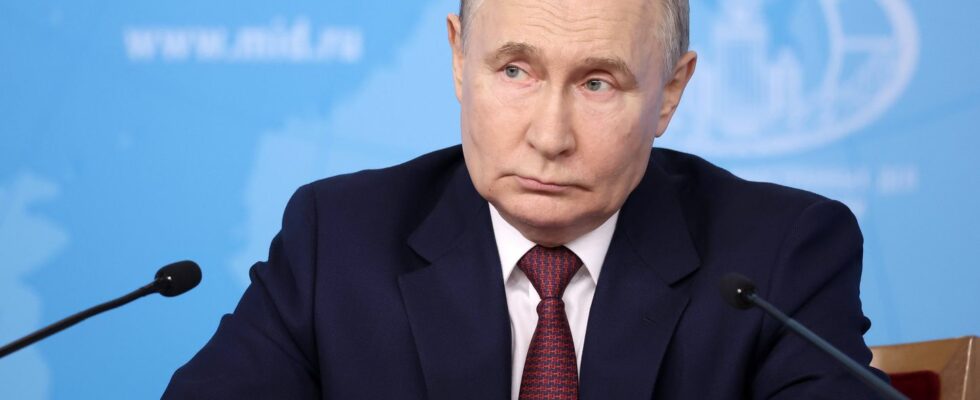A candidate for the European elections, Raphaël Glucksmann, accused on social networks of being a CIA agent. The maneuver came from “pro-Chinese actors” and “pro-Chinese accounts”, a security source then indicated to AFP. Is there a risk of seeing the same maneuver repeated towards a candidate or a party, while Emmanuel Macron announced Sunday evening, to everyone’s surprise, the dissolution of the National Assembly and the holding of legislative elections in a very short period of time – three weeks of preparation and campaigning before the first round takes place?
The risk of foreign interference does exist, said Senator LR Agnès Canayer, co-rapporteur of a proposed law on the subject. “An election is always a breeding ground for interference, especially when it is national,” she said. developed from The cross. And all the more so since certain countries no longer hide their ambitions. Margarita Simonian, the head of pro-Kremin media outlets RT and Sputnik, acknowledged the creation of channels aimed at reaching the American population.
Surfing the divisions
France is, like its European neighbors, targeted by the phenomenon. In May, while riots were taking place in New Caledonia, pro-Azerbaijani accounts surfed on the ongoing divisions and published “a montage successively showing two white police officers with rifles […] then dead Kanaks,” a government source assured AFP. The campaign was considered “quite massive”, with around “4,000 publications”. On May 16, the Minister of the Interior, Gérald Darmanin, publicly accused Azerbaijan of interference.
During the European campaign, unlike their neighbors Germans, Dutch or Spanish, French voters were less targeted by narratives encouraging them not to vote. On the other hand, two other dynamics were observed in France: the first was to see a candidate or a party denigrated, in particular through the dissemination of a message reproduced and pushed identically on several accounts in an artificial manner. This is what happened to candidate Raphaël Glucksmann who was targeted by “pro-Chinese” accounts. He then denounced “pathetic slander”. In order to protect candidates and their teams, Viginum, the government service responsible for detecting this foreign digital interference, had published a guide to “sensitize” campaign teams to these risks.
The audience, not necessarily the primary goal
The second dynamic observed aimed, conversely, at supporting a candidate or a party with these same methods. As revealed by Médiapart On Friday, pro-Russian accounts broadcast messages favorable to Jordan Bardella and the National Rally during the electoral campaign. To our colleagues, the party affirms that it is not at the origin of this campaign and “condemns this destabilizing operation”.
These messages, notes Médiapart, do not seem to have reached a large audience on social networks. The impact of these campaigns seems rather elsewhere: either in the repetition of messages, sometimes cross-border, or in a desire to mobilize the resources of editorial teams specializing in fact-checking. Thus, in recent months, editorial offices in many European countries – in Belgium, in Spain or in Italy – all worked to verify montages showing fake graffiti depicting Volodymyr Zelensky as a cannibal.
Media specializing in fact-checking were directly contacted, by email or on social networks, to verify this content, which for some impersonated media outlets. A strategy called operation “overload” by the Finnish company Check First. This company does not directly point to Moscow’s involvement, but assures that “the objectives of the operation correspond to the interests of the Kremlin”. Viginum also warned on June 10 about this modus operandi.
Now that it has been revealed, will the campaign happen again? Calm reigns for the moment in the mailbox of our fact-checking unit.

